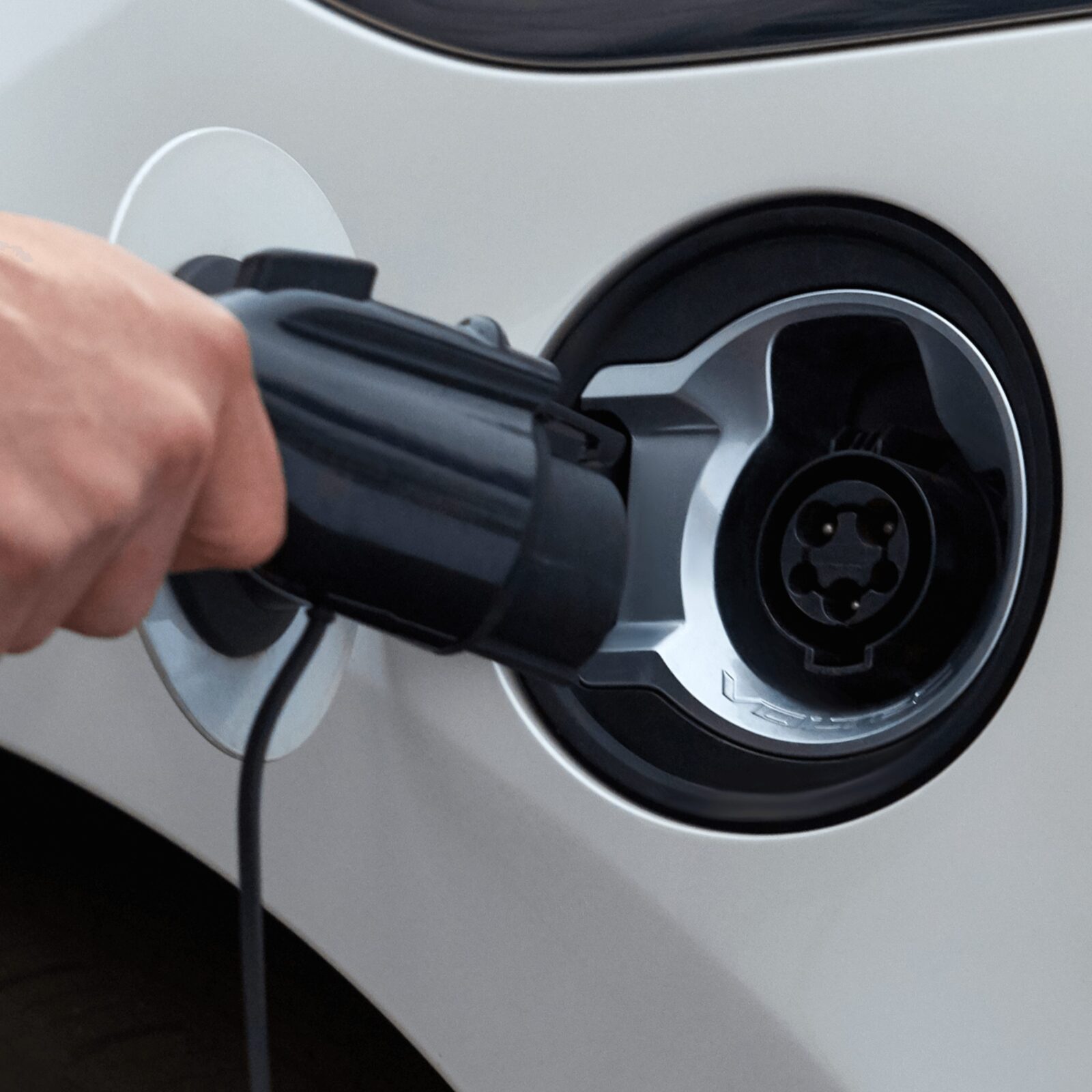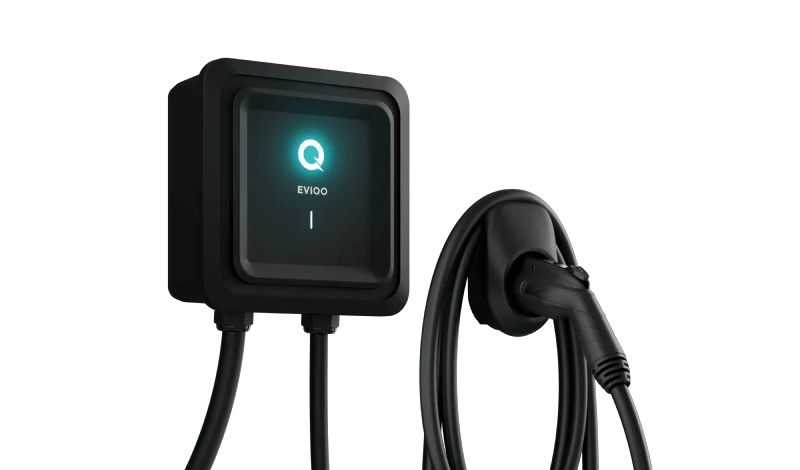Owning a plug-in hybrid electric vehicle (PHEV) brings the best of both worlds—electric efficiency for daily drives and gasoline for longer trips. According to the Federal Highway Administration, the average American drives about 14,200 miles per year, or roughly 39 miles per day. With PHEVs typically offering 20 to 30 miles of electric-only range, a full daily charge can cover most of your routine without ever touching the gas tank.
Why a Level 2 Charger Is Essential for PHEVs
For plug-in hybrid electric vehicles (PHEVs), having reliable access to a home charger is key to maximizing fuel savings and environmental benefits. While Level 1 chargers—those that plug into a standard 120-volt household outlet—can technically get the job done, they deliver only about 3 to 5 miles of electric range per hour. That means fully charging even a small PHEV battery could take 8–12 hours or more, making it impractical for drivers with busy schedules or multiple daily trips.
By contrast, Level 2 chargers operate on a 240-volt circuit (the same kind used for electric dryers or ovens), delivering much faster charging speeds. A high-capacity unit like the EVIQO Level 2 EV Charger (48 amps) can add up to 32 miles of electric driving range per hour. This is especially helpful for PHEV owners whose daily commutes fall within that range—allowing them to run almost entirely on electric power.
Key Benefits of a Level 2 Charger for PHEV Owners:
- Faster Top-Ups: With Level 2 charging, most PHEVs can be fully charged in under 2 hours. This means you can plug in when you get home and be fully charged again before heading out—even if you run errands in the evening or have a second trip planned.
- Climate Preconditioning: Many PHEVs support preconditioning, which lets you heat or cool the cabin while the car is plugged in. This enhances comfort and range by drawing power from your home’s electrical supply instead of your vehicle's battery.
- Convenience and Consistency: You won’t need to rely on public chargers or time your drives around availability. A Level 2 charger gives you predictable, daily access to a fully charged battery—helping you avoid unnecessary gas use and extending your electric-only driving time.
Upgrading to a Level 2 charger turns your home into a reliable fueling station, ensuring that your PHEV is always ready when you are. It’s the simplest way to get the most from your plug-in hybrid investment. For a smart, powerful, and future-ready solution, the EVIQO Level 2 EV Charger (48 amps) is a top choice for homeowners looking to electrify their daily routine efficiently.
Cost of Charging at Home
One of the biggest advantages of owning a plug-in hybrid electric vehicle (PHEV) is the ability to recharge conveniently and affordably from home. Compared to fueling up at the gas station, charging a PHEV using residential electricity can dramatically lower your cost per mile.
Most U.S. households pay between $0.10 to $0.20 per kilowatt-hour (kWh) for electricity, depending on location and time of use. At those rates, charging a PHEV battery—from empty to full—typically costs $1 to $2, depending on the battery size. Since most PHEVs hold between 8 to 16 kWh of usable energy, that’s enough to cover 20 to 40 miles of electric-only driving, often more than sufficient for a full day’s commute or errands.
Another factor in the cost equation is frequency. Because PHEVs have smaller battery capacities than fully electric vehicles, they require less electricity overall. Most drivers won’t need to charge every night—every second or third day may be enough, especially if you’re not pushing your full electric range daily.
Additionally, using a Level 2 home charger—like the EVIQO Level 2 EV Charger (48 amps)—can help you take advantage of off-peak utility rates. Many utility providers offer time-of-use (TOU) pricing plans that lower electricity costs during evenings or overnight hours. With built-in smart scheduling, you can program your charger to operate during these lower-cost periods, maximizing savings over time.
To get a more precise estimate for your location, check your local rates or use the U.S. Department of Energy’s eGallon tool to compare the cost of electricity vs. gasoline in your state.
Savings on Maintenance and Running Costs
Owning a plug-in hybrid electric vehicle (PHEV) doesn’t just cut fuel expenses—it also significantly reduces your long-term maintenance and operating costs. That’s because PHEVs rely more on electric power for daily driving, and electric drivetrains are inherently simpler and more efficient than traditional gasoline engines.
According to MotorTrend and other auto industry analysts, electric and hybrid vehicles generally require fewer repairs and less frequent service. Components like oil filters, spark plugs, and timing belts—common sources of wear in internal combustion engines—aren’t needed or are used far less in PHEVs. That means fewer trips to the mechanic and lower routine maintenance costs.
When it comes to per-mile expenses:
- Gas-only vehicles typically cost around $0.10 per mile to operate.
- PHEVs can bring that cost down to approximately $0.09 per mile, especially if you're maximizing electric-only miles through regular charging.
Additionally, many PHEV models are eligible for federal tax incentives. Through the Inflation Reduction Act, qualified buyers can receive up to $7,500 in federal tax credits—though the actual amount depends on the vehicle’s battery size, your income, and where the vehicle was assembled.
Beyond the federal level, numerous state and local rebates are also available. These can include:
- Point-of-sale rebates on PHEV purchases
- Installation credits for home EV chargers
- Utility rebates for off-peak charging
To find incentives in your area, visit the U.S. Department of Energy’s Database of State Incentives for Renewables & Efficiency (DSIRE) or the Alternative Fuels Data Center.
Taken together, these savings make PHEVs a smart financial move—offering both short-term affordability and long-term value.
Meet the EVIQO Level 2 EV Charger (48 amps)
The EVIQO Level 2 EV Charger offers:
- Universal compatibility with PHEVs and most EVs
- Up to 32 miles/hour charging speed
- 240 V operation on a dedicated circuit
- Durable build and intuitive design
This charger enables you to consistently tap into electric driving and reduce fuel use, emissions, and costs—all while supporting a modern driving setup.
The Big Picture
PHEVs are designed for flexibility. When paired with a high-speed Level 2 home charger like the EVIQO, they offer worry-free, efficient driving without range anxiety. You’ll enjoy clean, cost-effective daily commutes and the freedom to go further when needed.
Ready to upgrade your charging setup? The EVIQO Level 2 EV Charger (48 amps) is engineered to meet your needs today—and adapt to yours tomorrow.


